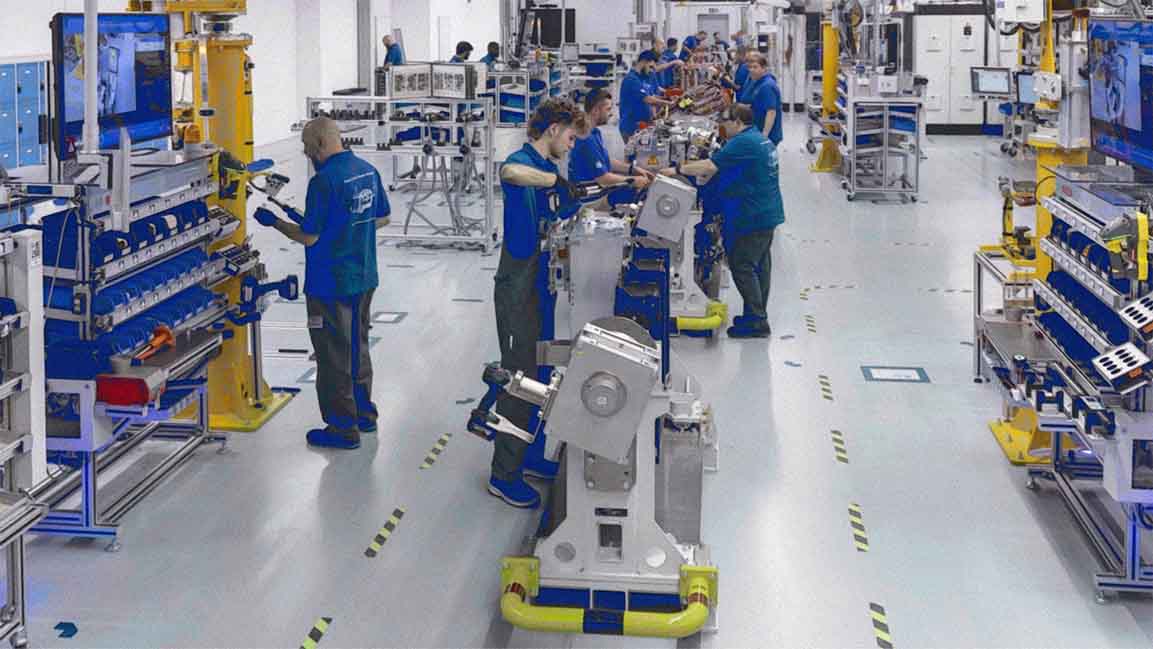- | 12:00 pm
Bosch to invest nearly $2.8 billion into hydrogen technology
The German tech giant has begun volume production of its fuel-cell power module

Hydrogen is expected to play a key role in the coming years as economies and industries transition to a low-carbon world to mitigate climate change. Fittingly, tech giant Bosch, which operates along the entire hydrogen value chain, is entering the hydrogen age of mobility. Fast Company Middle East got an exclusive invite to attend the announcement that the company is stepping up its investments in hydrogen.
At its Stuttgart-Feuerbach site, it has begun volume production of its fuel-cell power module. “Here in Stuttgart-Feuerbach, the hydrogen future is about to happen,” said Dr. Stefan Hartung, the chairman of the board of management of Robert Bosch GmbH. “Bosch knows its way around hydrogen, and Bosch is growing with hydrogen.”
This gives Bosch, one of the earliest European companies to do business in the Middle East, a huge opportunity to play a lead role in the region, which is uniquely positioned to become a frontrunner in the future hydrogen economy.
In the landscape of changing energy mix for the mobility industry, with countries across the Middle East aiming to achieve net zero emissions by 2050 and bullish about hydrogen, Bosch can tap into its future potential, taking the hydrogen economy forward.
Between 2021 and 2026, Bosch will have invested nearly $2.87 billion in developing and manufacturing its H2 technologies and plans to generate sales of roughly $5.6 billion with hydrogen technology.
“Bosch is one of the few companies capable of mass-producing technology as complex as fuel-cell stacks. We don’t just have the required systems expertise, but also the capability of quickly scaling up new developments to mass production,” said Markus Heyn, member of the Bosch board of management and chairman of Bosch Mobility.
Production of the fuel-cell power module is not only starting in Feuerbach but also in Chongqing, China. In addition, Bosch is also planning to manufacture stacks for mobile applications in its US plant in South Carolina. Worldwide, the company expects that, by 2030, one in five new trucks weighing six tons or more will feature a fuel-cell powertrain.
According to the International Energy Agency, 520 million tons of hydrogen will be needed to achieve net-zero targets by 2050.
However, the further prospects for the hydrogen business depend on countries’ obligations worldwide. The UAE launched its National Hydrogen Strategy earlier this year. In the coming days, many national strategies are expected to be set and executed, which can lead to a boom in large-scale hydrogen projects.
The Middle East has abundant resources to produce low-carbon hydrogen at a large scale. Its geographic location is ideal for exporting hydrogen to major demand centers in Europe and Asia. With collaborations with tech giants like Bosch, the region can become a leader in hydrogen innovations.
Bosch is exploring several options for the use of hydrogen. Stationary solid-oxide fuel cells can be used for the distributed supply of power and heat. In a pilot project at the hospital in Erkelenz, near Cologne in Germany, Bosch wants to use the technology to achieve an overall efficiency of 90%. The micropower plant will initially run on natural gas but can be converted to green hydrogen. Besides the fuel-cell powertrain, Bosch is also working on the hydrogen engine, developing port and direct hydrogen injection systems. This solution is particularly suitable for heavy vehicles on long hauls with especially heavy loads.
“A hydrogen engine can do everything a diesel engine does, but on top of that, it is carbon neutral. It also allows a fast and cost-effective entry into hydrogen-based mobility,” Heyn said. One major advantage is that over 90% of the development and manufacturing technologies it needs already exist. The H2 engine is expected to be launched starting in 2024.































